When Your Plan for High School Science Isn’t Working
Homeschooling works. It just doesn’t always look the same from one child to the next. Sometimes even the best intended plans fail and adjustments need to be made. Our latest major adjustments were made in the subject of science and I’ve shared our success story here in hopes that you will be encouraged not to give up when your high school science isn’t working. Or any subject for that matter!
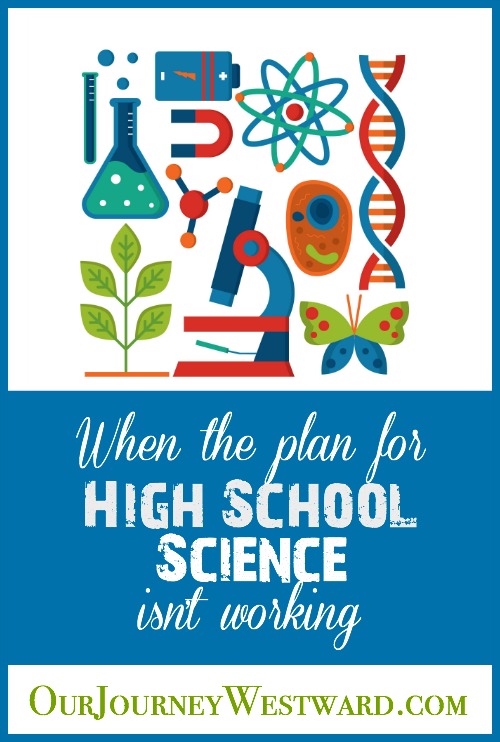
This post contains affiliate links.
What works for one kid…
With my oldest (who is now in college) we followed the plan so many homeschoolers follow for high school science…Apologia textbooks. They are absolutely wonderful science courses that I’ve found to be almost AP like in their depth. It was easy to study from the text four days a week and find nature-based connections for exploring and experimenting in our outdoor nature study lab the fifth day. This plan worked well for my highly academic daughter who enjoys reading, challenging material, and giving 110% even when the going is tough.
…doesn’t necessarily work for the other.
My middle child, who is entering 11th grade learns differently than his sister. He always has. He learns best when taking in information through visual, auditory, and hands-on methods. While we trudged through Apologia’s Exploring Creation with Physical Science during his 9th grade year, he didn’t find enjoyment in it at all. He also wasn’t soaking in the information – likely from a little boredom, as well as all the information coming at him through words in the text. Remember, while he’s super-smart, his learning style isn’t linguistic. Even so, we made it through and he looked forward to our weekly nature study time that solidified some of the concepts he had been learning.
Last year, because I didn’t really know what else to do that was worthwhile, we moved right into Apologia’s Exploring Creation with Biology. I even purchased the Student Notebook thinking it would keep him better organized and the consistent note taking, writing of definitions, and written study guide would help the information to stick better. While it IS a very cool addition to the text, it’s still very linguistic. He was bored, often confused, and beginning to HATE science.
It is possible to make imperfect curriculum work.
Yes, yes. I could have purchased the teaching DVD’s to help with the visual and auditory needs. We could have created flashcards and played games with them to help with memorization of the terms. I could have located YouTube videos for some additional explanations. Etc. But, with science already taking him FOREVER to complete, those nice additions would have only prolonged his torture.
A few chapters in, I took over reading the text to him and it helped A LOT. Then, one day I talked with a sweet momma who was making plans for homeschooling high school. She happened to have been a biology major in college…and earned a graduate-level science degree as well. When she told me that she was really struggling to use Apologia textbooks with her children because they seemed more like college-level books than high school level, it stopped me in my tracks. I needed to make a change for my son.
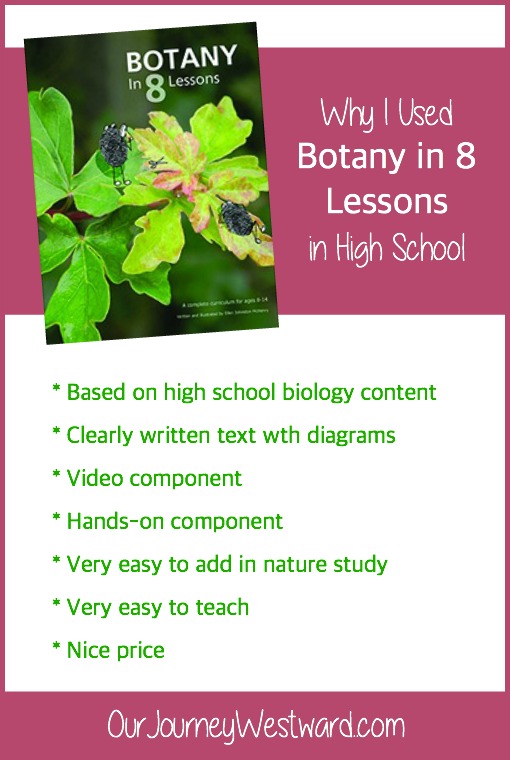
Then I found Botany in 8 Lessons and fell in love.
It just so happened that my friend, Susan Williams, had just written a review of Botany in 8 Lessons by Ellen McHenry. I had used some of Ellen’s freebies over the years and KNEW that I liked her stuff AND it was very scientifically in-depth. I didn’t think twice, I ordered a copy that day.
Here’s the thing. The curriculum is labeled appropriate for ages 8-14. But I was using it with a 15-year-old. Would it work?
It did! In fact, it went into far more depth than I would ever consider teaching an elementary student. Some of the more intricate information might even be a bit much for the middle school crowd unless they already have a strong background in botany through nature study or another curriculum. When someone asked Ellen in her FAQ’s if you could use Botany in 8 Lessons with older students, she answered. “The content is basically ‘high school biology,’ so yes, you can.” That answer sealed it for me and we jumped right in.
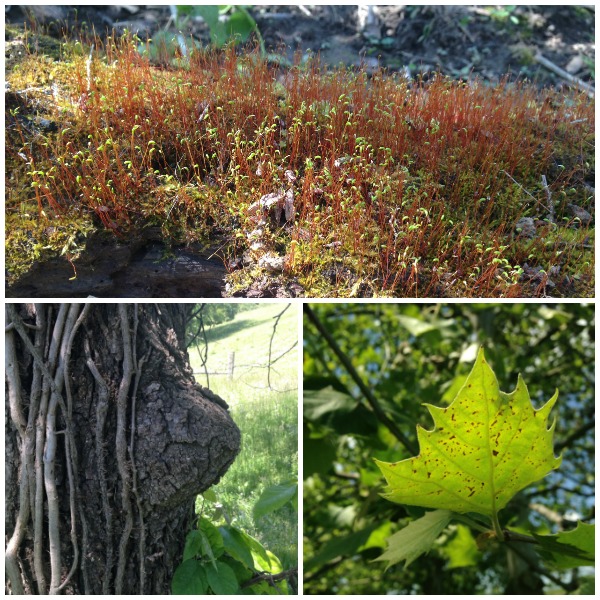
P.S. All the photos were taken during nature walks looking for examples from our Botany in 8 Lessons studies.
We had already covered the first six chapters in Apologia’s Exploring Creation with Biology. Meaning Caleb had already been through a basic overview of the study of life; and learned about the Kingdoms Monera, Protista and Fungi; and had an in-depth look at the structure of cells. The final topics to be covered were mostly about the plant and animal kingdoms. Botany in 8 Lessons was going to cover just about everything from Apologia’s (2) Kingdom Plantae chapters – plus some.
I decided that after Botany in 8 Lessons we would use a hefty dissection kit with lots of research to fill in what would have been included in Apologia’s various animal kingdom chapters. Considering how much time we had already spent over the years understanding animals and their classifications (thanks to nature study!!) this turned out to be the perfect method for us.
Hear that.
Botany in 8 Lessons is not enough for a full high school biology credit. It wasn’t even quite enough to fill half a credit, but it did a bang up job teaching the botany portion!
The good news for you is that Ellen McHenry has other biology topics available if you prefer to use her curriculum to round out your biology credit. (I would still add a good dissection kit with animal research to these books. See how to do high school dissection here.)
I love the set-up of Botany in 8 Lessons.
Eight lessons doesn’t seem like much, but each lesson can easily take up to a week (or more if you complete some suggested projects or add nature walks to find examples of what you’ve learned about.) It took us nine or ten weeks to get through the book.
Each lesson contains a Level One and Level Two section of text. Definitely read BOTH sections if using the book in high school. Both levels are followed by three or four rather easy review activities that are mostly workbook-based. I used those activities as “review pages” and created my own tests at the end of each chapter. (There are no formal tests provided.)
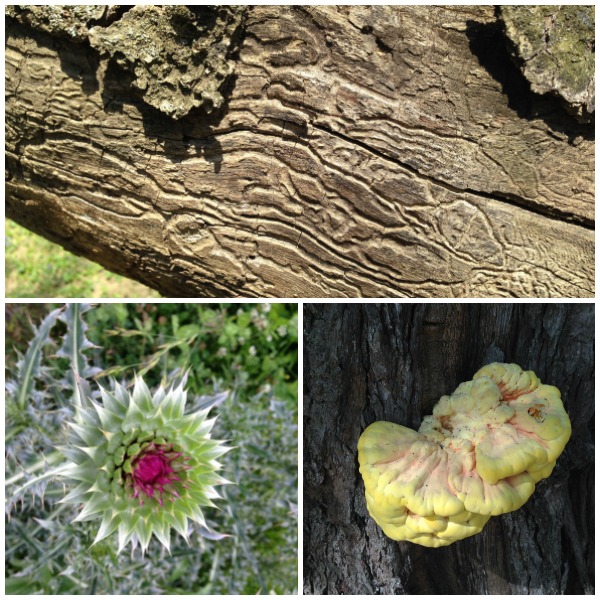
The coolest part of each lesson for the sake of Caleb’s learning style is Ellen’s integration of YouTube videos which help further explain (or cement) the concepts. These were HUGE benefits to my son. I should add that Ellen has also included very clear diagrams on each and every page of text that help students “see” the concepts!
For kids who really need hands-on activities in learning, each and every lesson includes some really great supplemental games, experiments, and other activities to drive home the lessons. For example, after reading Chapter 2, you can put together and play a fabulous game that walks you through the very scientific explanation of photosynthesis – where you generate ATP’s and load NADPH trucks and go through the Calvin Cycle. (See, I told you this was high school worthy!)
There’s even a lapbook component for each chapter! We didn’t complete any lapbook items due to time and because this kid of mine has never been crazy about putting them together.
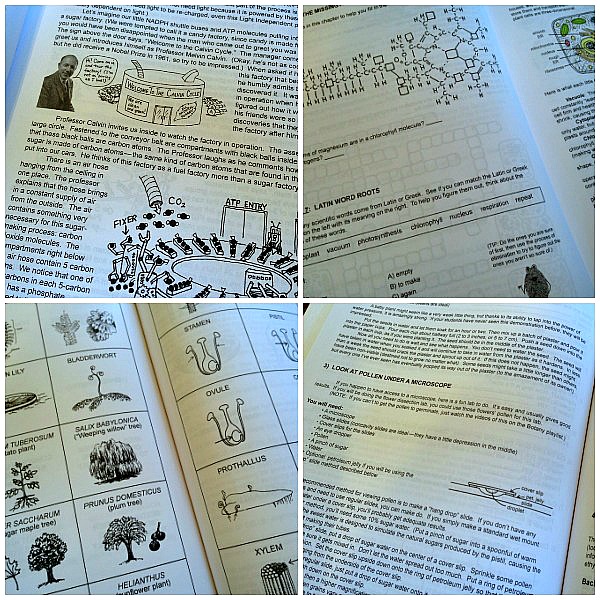
Caleb responded really well to this curriculum! He understood and has retained so much more information than when we focused on textbook-only lessons. Remember, there is a text component! It’s just that Ellen’s text is engaging with its humor and written in simpler explanations that most textbooks. (Not dumbed down, just clear wording.)
However, this course was NOT independent learning for my son. While I think you might be able to turn much of it over to your student, I really needed to know that all the information was being understood fully AND I wanted to be sure we were really doing something that deserved high school credit.
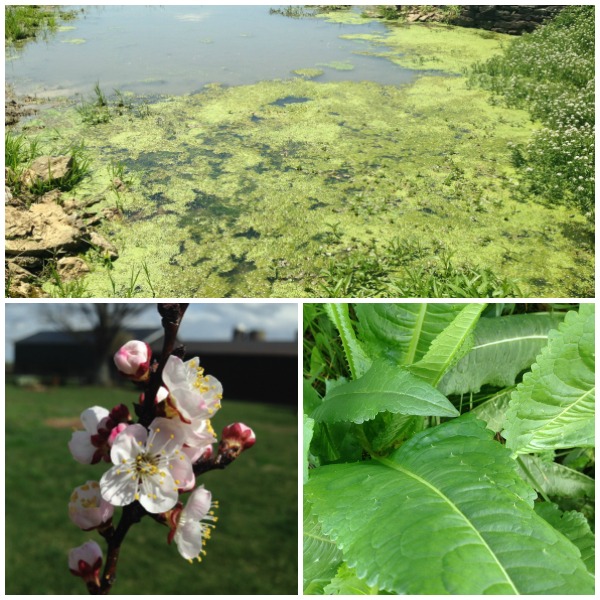
I’m building a chemistry course using Ellen McHenry’s curriculum, too!
This year, I am again using some of Ellen’s curriculum to help me round out a high school chemistry credit! We’re beginning the year with Chemistry 101, then moving on to Ellen’s The Elements: Ingredients of the Universe followed by Carbon Chemistry. Both of her books are again aimed at students a bit younger than my son, but I trust I’ll be happily surprised that they, too, are enough. If not, we’ll add in a few research and/or experiment projects to bump up the content.
I did receive some of Ellen’s books for free. After telling her how much we loved Botany in 8 Lessons, she blessed me with the other books in exchange for this review. All opinions, as always, are strictly my own.
Remember this when your plan for high school science isn’t working.
1. It’s okay to use high school curriculum that’s different from “everyone else” in the homeschool community IF that curriculum is thorough and worthy of a high school credit.
2. While high school students should certainly use some textbook-based curriculum, it isn’t imperative (or necessarily helpful) to turn all learning over to the textbook.
3. While high school students should be working toward complete independence in their studies, we are still their teachers. Students in the public high school are still very teacher-directed and we should expect that certain tough subjects might require us to be more involved than we had hoped. (***This one is a biggie.***)
4. It’s still VERY okay to use hands-on curriculum during the high school years – or curriculum that meets other various learning styles – if it helps your student “get it.”
5.Changing curriculum mid-year isn’t always easy, but trust your gut. (Whining about the workload is totally different than struggling with it.)
What have you used when the typical curriculum for high school science fell flat on its face in your homeschool?
Related Posts:
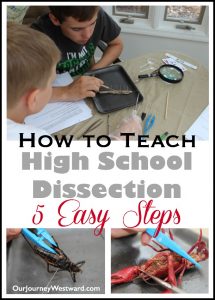
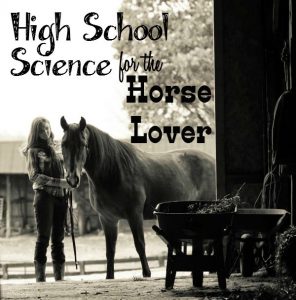

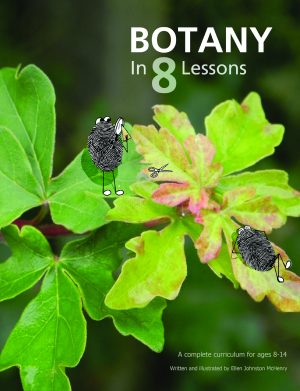
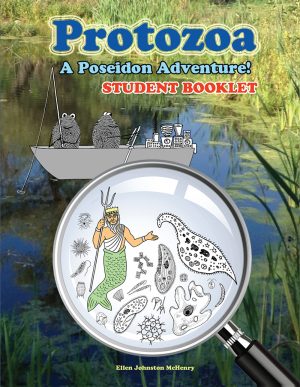
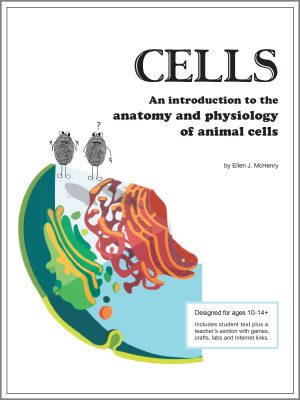

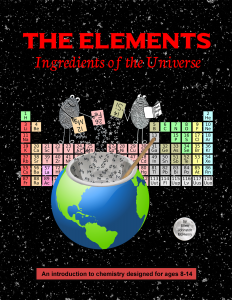
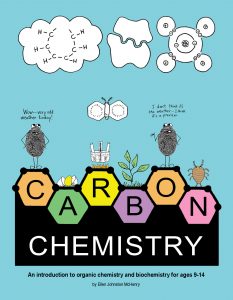
Yes, yes and yes to Apologia Physical Science. We are only 1 module in with my 9th grade son and I’ve already considered finding something else. I’ve purchased the audio cd and the multimedia cd but unless I sit with him through the whole thing and participate with him, I do not know what else to do. Any curriculum suggestions on Physical Science? Thanks!
Stephanie, I wish I knew of a different physical science resource for you! Hopefully, someone else will chime in with an idea or two.
Thanks for these suggestions! While I love how thorough Apologia is, the science courses have not been a good fit for my kids. We’re using Chemistry 101 for my 16 year old this year, so I’ll check out those chemistry books you mentioned, and I’m keeping the ones you mentioned for biology in mind for my 14 year old for next year. Thanks!
Stephanie… check out Master Books! They don’t have a “Physical Science” curriculum, but they have many science options. I think there’s an Applied Engineering that many have used as their Physical Science option.
I, too, came to Apologia and my oldest “hated” science after 2 years (General and Physical). We switched to Master Books for her.
I’ve recently learned about Friendly Chemistry and Friendly Biology (just released in August). The author is teaching it at Classes By Beth Plus, but you can use both on your own, if you prefer. I definitely plan to look further into those for my now 6th grade student who is interested in a science field (meteorology) vs. Apologia.
Great suggestions, Trena!
This is great Cindy…we have been using PAC but this third high schooler is not clicking with the science portion of it.
Like you we did Apologia, but the second son loved Bob Jones…this third one doesn’t like either one..lol
This looks fantastic for my son as we are struggling right now too..
Let me know what you think, Tina!
Cindy,
What do you suggest for the full year of biology out of the box??
My daughter is doing physical (apologia) and I just told her yesterday if she gets a good grade on her mod 9 test she can quit and just join me and my other two kidos for the rest of the year. She too HATES apologia and is loosing her love of learning science with it.
So I’m trying to figure out what to do next year. We love hands-on science. I’ve been looking at “the sciences”, “the wonder book of chemistry”, “first study of plant life”, adventures with s microscope”, “the weather book”, and “signs and seasons” to do over a 2-3 year period with all my kids. (Next year they will be 3rd grade, 6th grade, and 10th grade) of course with a day or two of nature study. But I’m just not sure yet. Any help would be GREATLY APPRECIATED!
Thank you!!
Michelle
Since we used so much of Apologia before switching to Botany in 8 Lessons, I don’t have experience teaching with Ellen McHenry’s other biology themed books – Protozoa and Cells. But…I have seen them and feel confident that they will fill in most of the biology topics EXCEPT the animal kingdom and traditional high school dissection. You can see what we did for research and dissection on this post. Good luck! 🙂
Did you write this just for me 😉 I am a Registered Nurse with my Bachelors Degree in Science… I LOVE science; especially anything that has to do with nature and the human body, but I just cannot love Apologia. My son is currently plodding through Physical Science and it is so very painful. I knew I wanted something different for all of us for Biology. I truly believe difficult subjects can be explained using everyday things. Isn’t that what great teachers do? Make the facts easy to understand and remember? I am so glad you gave us these suggestions. I only need to find how to add in the animal portion. Please post if you have found other things! Thanks again!!!
That IS what great teachers do! 🙂 Did you see this post about dissection? It went a long way toward teaching animal science.
We did half of physical science and had enough too so we just went straight to Apologia Biology and did it over 2 years for 7th and 8th great and that worked very well! Actually, we are going to do the Advanced Biology next while we are on a roll instead of doing chemistry and physics and then going back to Biology again!
Jen, taking your time through two years is a great idea! I also love the idea of moving right on in to advanced biology while the concepts are still fresh. We did that with Algebra 1 & 2.
I just found this article. THANK YOU so much! Between your suggestions, and those in others’ comments, I think I have found some great resources to use with my struggling, unmotivated highschooler, who hates math and textbook methods. I am not good at math or science, so you have helped me be able to put together something that will work for us. Bless you all!
So glad it was helpful and I hope your son enjoys the plan you’ve made for him!
This sounds like us! Thank you so much for the suggestions!
Thank you for ‘permission’ to find Apologia courses dry and turning my kids off Science. We too love Ellen McHenry and the way you have thought carefully through how to cover what is covered in Apologia Biology is so helpful. (I think I read somewhere that if you do dissections without the microscope studies, it is more than enough lab work for highschool.) We just did a year+ of Chemistry with Ellen McHenry’s Elements and Carbon Chemistry plus we used the Theodore Gray Elements app on ipad and kids notebooked 2 elements per week (not strictly necessary but very engaging). We also read Tiner’s Exploring the World of Chemistry for the historical flow and because we love his books too. For related history, we read Black Gold by Albert Marrin which shows how petrol/gas impacts history and carbon chemistry is very much on petrochemicals. We skipped all the activity books of McHenry’s and instead did the free ACS Middle School Chemistry online/downloadable for experiments which taught the scientific method very well – did most lessons, skipping some bits previously covered by Elements or earlier years, and stockpiled chemicals off ebay in small quantities. What I loved what that there were only a handful of experiments where we didn’t have the equipment and the experiments worked better than any other curriculum I’ve used … and we’ve done a lot of experiments. In America, you could get chemicals from homeschoolsciencetools. HTH!
Wow, Shona. Thanks for sharing how you’ve pulled together great courses! I have used the free ACS middle school chemistry curriculum, too, and loved it.
You could also try looking at https://scienceshepherd.com, https://bereanbuilders.com/, or https://myfunscience.com
Wow, this is just what I was looking for. My oldest will be starting 8th grade, and his learning style is very much like your son’s. I’ve followed your blog for years and have gleaned much wisdom from your posts! Thank you, again, for this one. It’s rather strange how Apologia has become the “go to” curriculum for high school (and middle school) science. Thank you for taking your experience and offering advice and options to those of us in similar situations.
I’m so glad the post was helpful to you, Sumer! 🙂
Thank you for this post! We haven’t loved Apologia either. (I think we’ll try https://explorationeducation.com/ for Physical Science next year). We have used several of Ellen McHenry’s books/crafts in the past and they’re so great- yet I was hesitant to use them for high school. Reading about your success has made me even more excited to go for it! I want to add a quick plug for Excavating English by Ellen McHenry- my 7th grade daughter loved it! Thanks again!
Thank you for this post (and all those who chimed in the comments)!
I was looking at Apologia’s Science books (for my soon to be 7YO son), having seen it used in a local co-op and having read several good reviews.
Your objective review, specifically mentioning how text-heavy it is, has been most useful to me. As my boy isn’t that way inclined, I’ve decided not to buy them. You’ve saved me hundreds! (Postage from the US to Australia would have cost me more than the cost of the books).
So thanks again!
Lainy, I actually really like Apologia! It’s a stellar curriculum for high school…it’s just that it doesn’t always work for every student. You mentioned that your son is 7yo. If you’ve been looking at the Apologia books for younger students (written by Jeannie Fulbright), I LOVE them! They are a nice amount of text with hands-on ideas to break up the monotony.
Hi I was about to Order Apologia Chemistry for my 11 year old ( the one for elementary school) Then someone posted your post on Facebook, My son has Aspergers , and it is difficult to find the right thing for him. His older brother and sister are doing Apologia, but like you said, it is not working for him. thanks for posting this. I think I am going to switch. Although I already have all the high school books…. it makes it difficult to switch, but those books will not work for him.
Esther, I understand the hesitation to switch. I hope your new plans fit your son well!
Thank you for this post. I was struggling choosing a high school science plan for my son with high-functioning autism. I was really on the fence with Apologia being recommended so much but possibly just too heavy for him. I was highly recommended the biblically and visually sound 101 Series biology DVDS. Although they now have the course accreditation packed for high school credit, I still thought that it might not be enough. But after coming across your post, I think adding your suggestions of Ellen Mchenry’s books and the dissection kit will make it a well-rounded choice for biology for his 9th grade year. Thanks!
I have almost the same story to tell. We tried to use Apologia, I even got him the audio book version, the student book, and he was watching the videos with a friend, but it was not a fit for our family at all. We really did give this a solid try.
So I switched him after winter break to the Biology 101 DVD series, YouTube videos, and nature study outings once a week. What a great change!
Glad to know it wasn’t just my family that experienced this. Thank you for the recommendations for Chemistry! I am going to look in to this for next year!
It’s always so great when you build THE PERFECT course for your kiddo! I hope your chemistry year goes well, too! 🙂
Yay! I hope you LOVE the wonderful year of biology that you create! 🙂
Hi Cindy,
I am glad to have found your post today…..my 16yr old is working through Apologia Physical Science but my 15yr old is not interested…..there is an interest from her to do Applied Engineering from Master Books. My concern, if I look at all that is covered in Apologia compared to Master Books I am wondering how Master Books can be considered as a 1 year high school credit course – Apologia is quite in depth.
Is the general consensus that Apologia is college worthy?
How will I determine if what I choose for them will be worthy of a full credit for high school?
Many thanks
Tracey
Yes, the general consensus is that Apologia is a strong prep course for college. I haven’t used any high school level science curriculum from Masterbooks, so I can’t comment about a comparison. However, I have used some of the books suggested in their high school science bundles singularly and I would agree that there may not be enough depth in some cases. Just like I did in this post, you could certainly use Applied Engineering and add to it when you see gaps as compared to Apologia. You can be creative with the additions – a chapter here or there from Apologia, a physics lab at co-op, etc.
This quick class will help you determine if you are doing enough to make a course worthy of a high school credit…https://ourjourneywestward.com/downloads/student-led-classes-masterclass/.
Thank you so much for your post. My son, a freshman, usually enjoys science but Biology (Apologia) stopped him in his tracks. I started looking for alternatives when I came across your blog. Thank You! I’m guessing we’ll be out of the box for chemistry, too!
I’m glad it was helpful! Have fun learning…and loving it!
For Physical Science we LOVED the advanced course by Exploration Education.
There is also a Friendly Physical Science course by the makers of Friendly Biology and Friendly Chemistry. Also, Masterbooks has a Physical Science course that goes through 8th grade but I feel would also be appropriate for ninth as well. It is called God’s Design for the Physical World. I hope this helps!